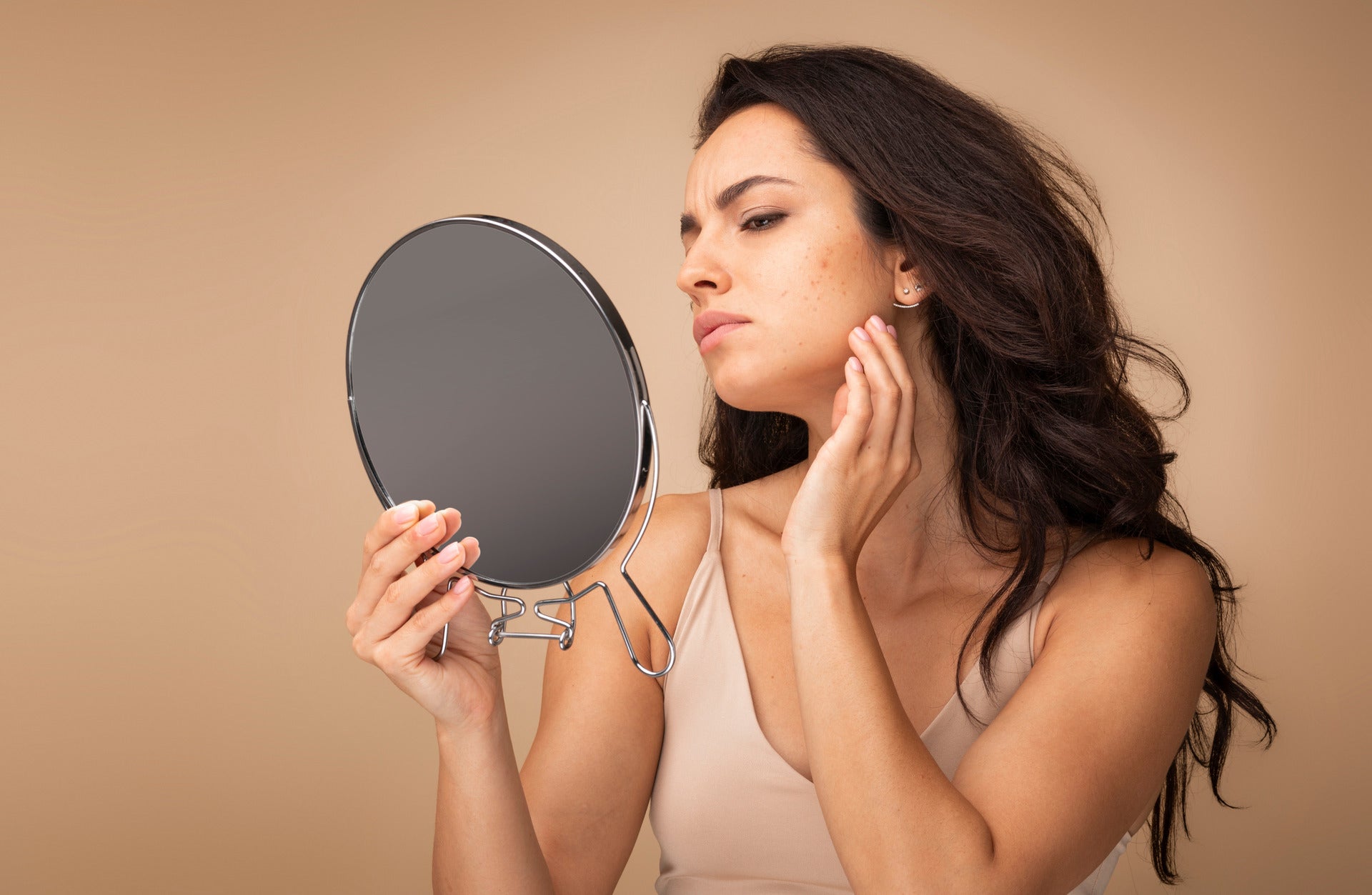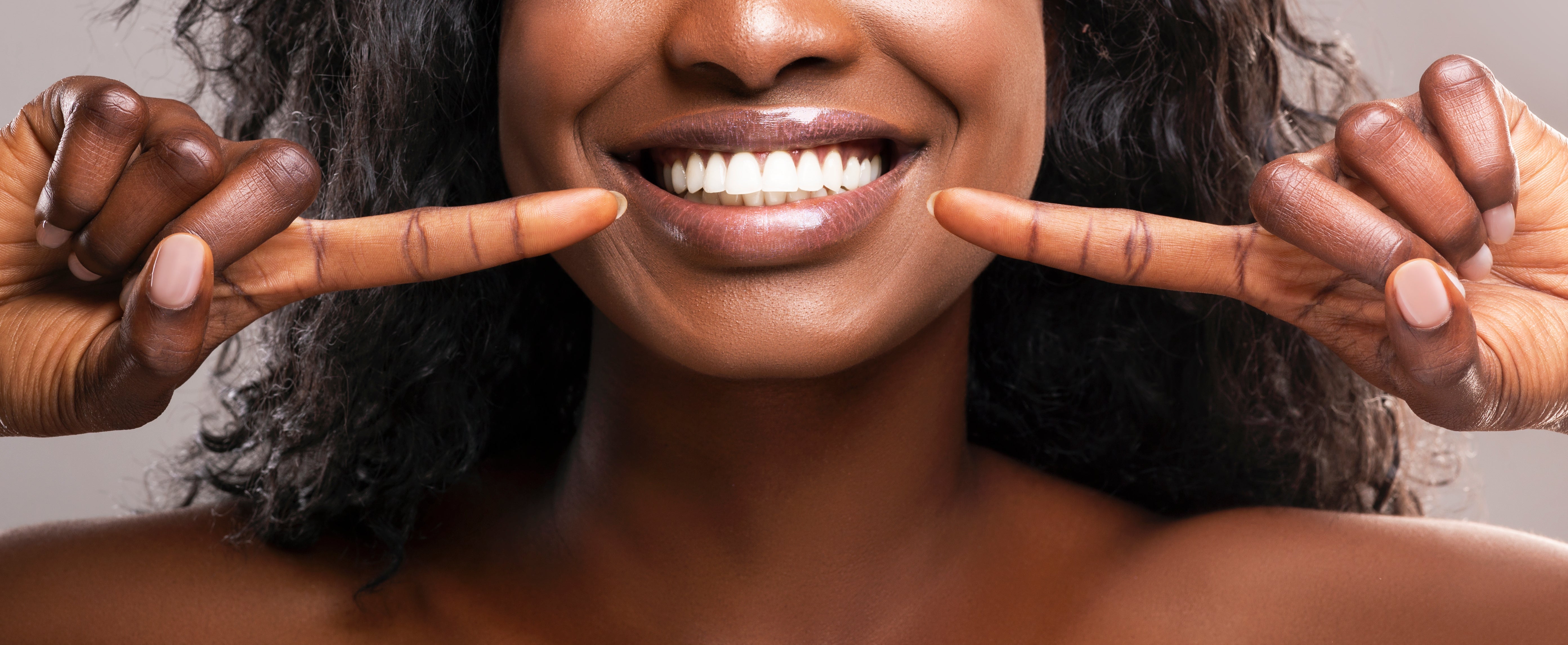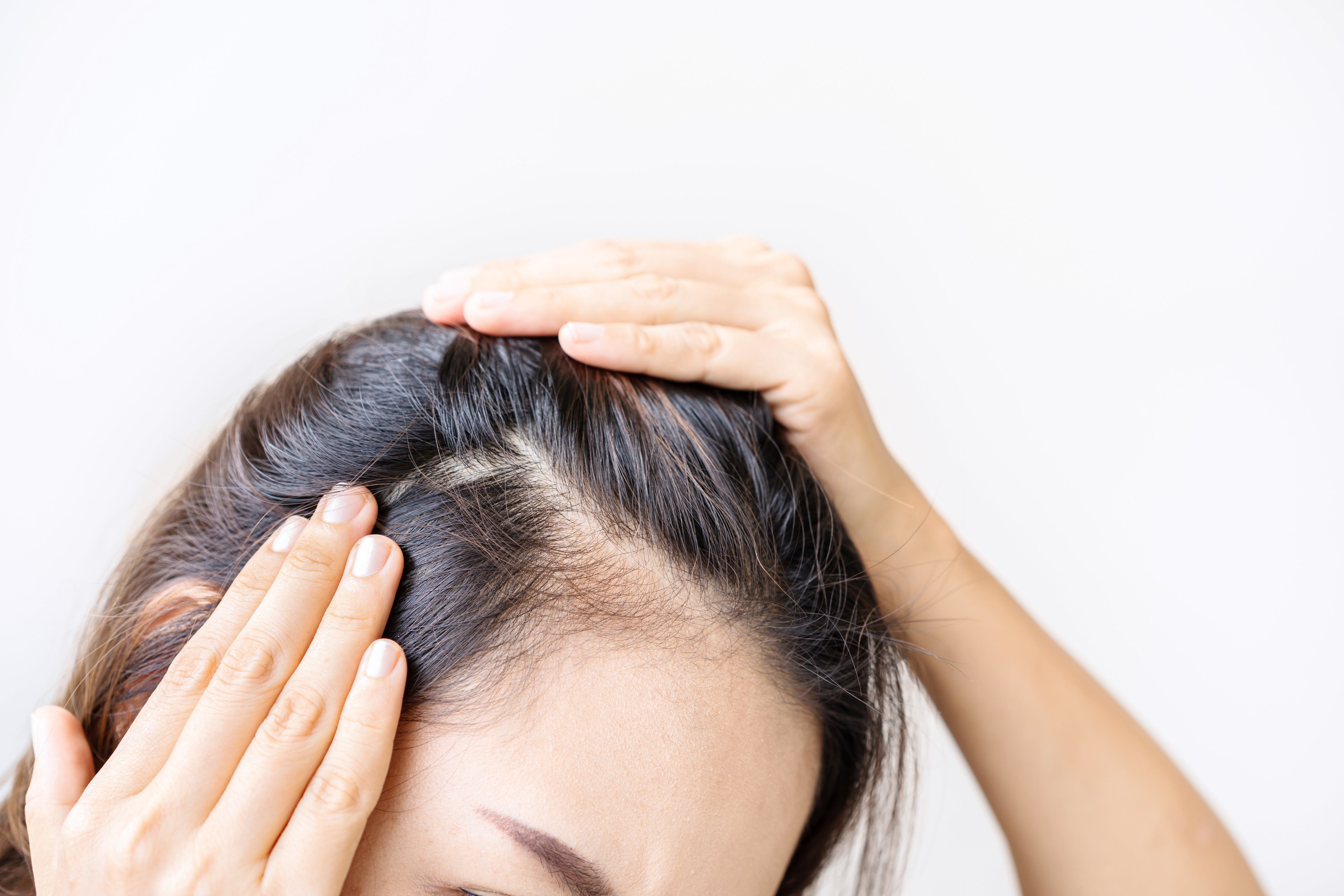
What Causes Acne & Breakouts? Triggers, Tips & Care
By Dr. Tahani Williams, M.D.
Acne is one of the most common skin concerns worldwide, yet it affects everyone differently.
For some, it shows up as the occasional pimple. For others, it means persistent breakouts that are hard to manage and frustrating to treat. Understanding what causes acne is the first step to finding relief and creating a skincare routine that truly works for you.
In this guide, we’ll break down the science of acne, its most common triggers, and practical steps you can take to prevent and manage breakouts.
The Science Behind What Causes Acne
Acne develops when your pores become clogged with oil (sebum), dead skin cells, and sometimes bacteria. The skin naturally produces sebum to keep itself moisturized, but when production goes into overdrive—or when dead skin isn’t shed properly—pores can become blocked.
Once clogged, pores create the perfect environment for Cutibacterium acnes (C. acnes) bacteria to multiply. The body responds with inflammation, leading to pimples, blackheads, or more severe breakouts like cysts.
Blackheads vs. Whiteheads vs. Pimples
There are various types of acne, those which include:
-
Blackheads occur when a pore is clogged but stays open. The trapped oil oxidizes, turning dark.
-
Whiteheads form when the pore closes over, trapping oil and debris beneath the skin.
-
Pimples develop when bacteria grow inside clogged pores, triggering redness and swelling.
-
Cysts & nodules are deeper, more painful forms of acne caused by severe inflammation. (1)
Common Acne Triggers You Should Know
Even though clogged pores are the root cause of acne, there are several factors that make breakouts worse. Recognizing your triggers can help you manage flare-ups more effectively.
Hormonal Changes
Hormones, particularly androgens, stimulate oil glands, leading to excess sebum production. This explains why acne is common during puberty, menstruation, pregnancy, and menopause.
-
Many people notice chin acne flaring up around their cycle.
-
Adult acne is also on the rise, especially among women in their 20s, 30s, and beyond.
Want to learn more about the changes in your skin as you mature? Read more about Tips for Adult Acne & Sensitive Skin.
Diet & Lifestyle Factors
Food doesn’t directly cause acne, but certain diets may worsen breakouts. Research suggests that high-glycemic foods (like white bread, soda, and sweets) and dairy products can spike insulin levels and oil production. (2)
If you’ve noticed a connection between what you eat and your skin, try keeping a food diary to spot patterns.
Stress & Sleep
Stress raises cortisol, a hormone that can increase oil production and inflammation. (3) Lack of sleep has a similar effect, making breakouts more likely and slowing healing.
Skincare & Cosmetic Products
Some skincare and makeup products contain pore-clogging or irritating ingredients. Fragrance, parabens, and heavy oils can all worsen acne.
That’s why Cleure products are free from fragrance, parabens, and common irritants – designed to support sensitive, acne-prone skin.
Learn about the Best Daily Care for Sensitive Acne Prone Skin, from Cleure.
How to Prevent & Manage Breakouts
While acne can’t always be prevented completely, you can reduce flare-ups with consistent care and smart lifestyle choices.
1. Use a Gentle Cleanser
Harsh cleansers strip your skin, causing rebound oiliness. Instead, wash with a mild, non-irritating cleanser.
Try: Cleure Gentle Cleanser – soap-free, sulfate-free, designed for sensitive, acne-prone skin.
2. Moisturize Daily
Skipping moisturizers can backfire, as dry skin triggers more oil production.
Try: Cleure Oil-Free Moisturizer – lightweight hydration without clogging pores.
3. Wear Sunscreen Every Day
Sun exposure can make acne worse and cause post-breakout marks.
Try: Cleure Sunscreen SPF 30 – broad-spectrum protection with zinc oxide.
4. Manage Stress & Sleep
Incorporate stress-reducing activities like meditation, exercise, or journaling. Aim for 7–9 hours of sleep each night.
5. Watch Your Diet
Consider reducing high-sugar foods and dairy if you notice a connection between your meals and breakouts.
FAQs About Acne & Breakouts
What is the main cause of acne?
Acne is caused by clogged pores filled with excess oil, dead skin, and bacteria. Genetics and hormones often make someone more prone to breakouts.
What causes chin acne?
Chin acne is often linked to hormonal fluctuations, particularly in women during menstrual cycles or times of stress.
What foods cause acne breakouts?
High-glycemic foods (sugary snacks, white bread, soda) and dairy may contribute to acne flare-ups in some people.
What causes cystic acne?
Cystic acne occurs when deep blockages in the skin become inflamed and infected, leading to large, painful breakouts.
Does stress cause acne?
Stress doesn’t directly cause acne but increases cortisol, which can boost oil production and worsen existing breakouts.
Clearer Skin with Cleure
Acne is complex, it’s not caused by just one thing but by a combination of genetics, hormones, lifestyle, and skincare choices. While breakouts can feel overwhelming, there are steps you can take to better manage your skin and support its natural balance.
At Cleure, we believe in gentle, science-backed solutions that don’t irritate sensitive skin. With the right skincare routine and lifestyle habits, you can keep acne under control and feel more confident in your skin.
Acne-prone skin is also sensitive skin. That’s why we’re committed to offering dermatologist-approved, irritant-free products that support clear, balanced skin without harsh ingredients.
Explore Cleure’s full acne-prone skin collection today.
References:
-
National Institute of Arthritis and Musculoskeletal and Skin Diseases, July 2023.
-
Journal of Diabetes Research, January 2015.
-
Cleveland Clinic, February 2025.



Leave a comment
This site is protected by hCaptcha and the hCaptcha Privacy Policy and Terms of Service apply.